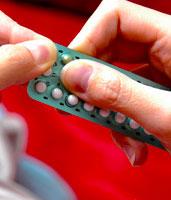Sixty years on from the creation of the pill
In 1957 the FDA approved a medicine referred to as Enovid for treating menstrual issues and infertility. Three years later, this mix of the artificial hormones norethynodrel and mestranol, was authorised by doctors as a contraceptive.

This article was first published on 1 August, 2017
This creation of the first female pill in the States in 1960 caused a sexual revolution. Couples were offered a higher success rate for avoiding pregnancies and the majority of women were handed contraceptive responsibility. British women could get the pill on the NHS from 1961, providing they were married.
Fast forward to the present day and Brits have fifteen different contraception methods available. In recent years there has been a focus on improving existing methods of female contraception to enhance efficacy, reduce side-effects and offer more contraceptive health benefits.
The focus is gradually shifting towards male contraception. Whilst there have been many developments in contraception for women over the last six decades, effective counterparts for men have yet to appear on the market. Men have no contraceptive options other than withdrawal, vasectomy and condoms.
Condoms, introduced 300–400 years ago, provide protection against sexually transmitted diseases when used properly, but are associated with high contraception failure rates. The need for effective and reversible methods of fertility control for men is widely recognised, but continues to be unmet.
Richard Anderson, Elsie Inglis Professor of Clinical Reproductive Science, leads the research team working on developing new forms of male contraception at MRC Centre for Reproductive Health.
The key aim is to expand upon the current contraceptive choices available and provide men with the right balance of hormones to offer reliable and reversible contraception, without inducing unacceptable side-effects.
Anderson believes that there is a clear and immediate demand for the male pill. Focus groups indicate that as many as 94% of women believe that the male pill would be a positive step forward (with 80% citing shared responsibility as the reason). Clinical trials have demonstrated their effectiveness and acceptability by both partners.
Research continues into new contraceptive methods that target the male reproductive system in the hope that one day soon, there may be more options for men and their partners.

